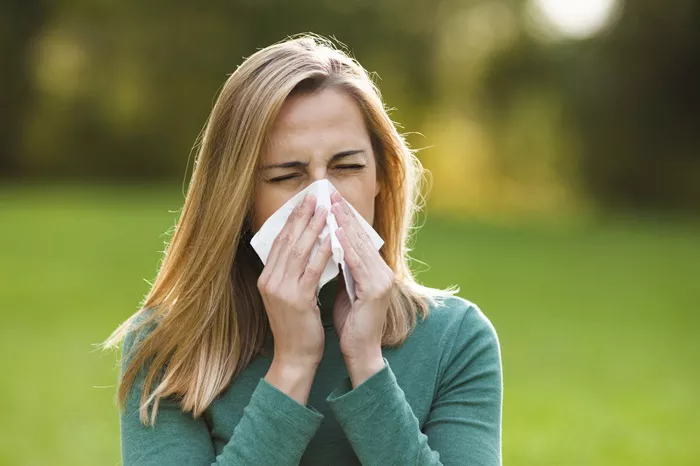Allergies can be a daily struggle for many, but they often seem to intensify as night falls. This phenomenon of worsening allergies at night can be perplexing and disruptive, affecting both sleep quality and overall well-being. In this article, we will explore the reasons behind this nighttime aggravation, delve into various contributing factors, and offer practical advice for managing symptoms effectively.
Allergy Symptoms
Allergic reactions are typically characterized by symptoms such as sneezing, itching, nasal congestion, and watery eyes. While these symptoms can occur at any time of day, many individuals find that their allergies become more pronounced during the night. This increased severity can lead to disturbed sleep and exacerbate the overall impact of allergies on daily life.
Understanding why allergies worsen at night involves examining several factors including environmental conditions, physiological changes, and lifestyle choices. By uncovering the reasons behind this nighttime aggravation, individuals can better manage their symptoms and improve their quality of life.
Environmental Factors
Dust Mites
Dust mites are microscopic creatures that thrive in household dust. They are a common allergen, and their presence is often more pronounced at night. Dust mites feed on dead skin cells and are commonly found in bedding, mattresses, and pillows. As people spend a significant amount of time in bed, exposure to these allergens can increase during the night, leading to heightened allergic reactions.
Pollen and Outdoor Allergens
Pollen levels can fluctuate throughout the day and night. In certain regions, pollen concentrations are higher in the late evening or early morning hours, which can exacerbate nighttime allergy symptoms. Additionally, outdoor allergens such as mold spores can enter the home through open windows or ventilation systems, contributing to nighttime allergy issues.
Indoor Air Quality
Indoor air quality can deteriorate at night due to factors such as closed windows and reduced ventilation. Poor air quality can lead to increased levels of indoor pollutants, which can trigger allergic reactions. Airborne irritants, including volatile organic compounds (VOCs) and smoke, can accumulate and worsen allergy symptoms during the night.
Physiological Changes
Body Position
The position in which a person sleeps can impact the severity of allergy symptoms. Lying flat can cause mucus to accumulate in the nasal passages and throat, leading to increased congestion and discomfort. This can exacerbate symptoms such as nasal congestion and coughing, making it difficult to breathe comfortably during the night.
Immune System Response
The immune system’s response to allergens may vary throughout the day. Some studies suggest that the body’s production of certain immune system components, such as histamines, may increase at night. Histamines play a crucial role in allergic reactions, and their elevated levels can contribute to worsened symptoms during the night.
Hormonal Fluctuations
Hormonal changes throughout the day can also affect allergy symptoms. For instance, cortisol, a hormone that helps regulate inflammation, tends to be lower at night. Reduced levels of cortisol may lead to increased inflammation and heightened allergic reactions.
Lifestyle and Behavioral Factors
Evening Routine
The activities and routines before bedtime can influence allergy symptoms. Using scented candles, air fresheners, or cleaning products with strong fragrances can introduce additional allergens and irritants into the environment. These substances can exacerbate allergy symptoms, particularly in sensitive individuals.
Bedding and Linens
The cleanliness and composition of bedding and linens play a significant role in managing nighttime allergies. Allergens such as dust mites, pet dander, and mold can accumulate in pillows, sheets, and blankets. Regularly washing and maintaining clean bedding can help reduce exposure to these allergens and alleviate symptoms.
Pets
For individuals with pet allergies, sleeping in close proximity to pets can worsen symptoms at night. Pet dander, which consists of tiny skin flakes and proteins, can become trapped in bedding and affect allergy sufferers. Keeping pets out of the bedroom and maintaining a clean environment can help mitigate these issues.
See Also: Why Are There So Many Gluten Allergies?
Medical Considerations
Undiagnosed Allergies
In some cases, worsening allergy symptoms at night may be due to undiagnosed or untreated allergies. Individuals experiencing persistent or severe nighttime symptoms should consider consulting with an allergist for proper diagnosis and treatment. Identifying specific allergens through testing can lead to more effective management strategies.
Chronic Conditions
Certain chronic conditions, such as asthma, can be exacerbated by nighttime allergies. Individuals with asthma may experience increased symptoms during the night due to allergen exposure and changes in respiratory patterns. Managing both asthma and allergies with appropriate medications and lifestyle adjustments is crucial for improving overall quality of life.
Medication Side Effects
Some medications used to treat allergies may have side effects that contribute to worsening symptoms at night. For example, certain antihistamines can cause drowsiness or dry mouth, which may interfere with sleep quality. Consulting with a healthcare provider to adjust medication or explore alternative treatments can help address these issues.
Practical Tips for Managing Nighttime Allergies
Optimize Bedroom Environment
Maintaining a clean and allergen-free bedroom environment is essential for managing nighttime allergies. Regularly wash bedding in hot water to kill dust mites and remove allergens. Use hypoallergenic pillow and mattress covers to reduce exposure to dust mites and other allergens.
Improve Air Quality
Use an air purifier with a HEPA filter to remove airborne allergens and improve indoor air quality. Keep windows closed during high pollen seasons and ensure proper ventilation to reduce indoor pollutant levels. Regularly clean air ducts and replace filters to maintain good air quality.
Adjust Sleep Position
Consider using extra pillows or a wedge to elevate the head while sleeping. This can help prevent mucus accumulation and reduce nasal congestion. Experimenting with different sleep positions may also help alleviate nighttime allergy symptoms.
Implement Allergy-Friendly Practices
Avoid using strong fragrances or cleaning products with potential allergens in the bedroom. If possible, keep pets out of the bedroom to minimize exposure to pet dander. Additionally, consider using allergy-friendly bedding and cleaning products to further reduce allergen levels.
Consult with Healthcare Providers
For individuals with persistent or severe nighttime allergy symptoms, consulting with healthcare providers is crucial. An allergist can perform tests to identify specific allergens and recommend appropriate treatment options. Discussing symptoms and treatment options with a healthcare provider can lead to more effective management strategies.
Conclusion
Understanding why allergies worsen at night involves exploring a range of factors including environmental conditions, physiological changes, and lifestyle choices. By addressing these factors and implementing practical strategies for managing nighttime allergies, individuals can improve their quality of life and achieve better sleep. Managing allergies effectively requires a comprehensive approach that includes optimizing the bedroom environment, improving air quality, and making lifestyle adjustments. Consulting with healthcare providers and exploring treatment options can also play a key role in alleviating nighttime symptoms. By taking these steps, individuals can find relief from nighttime allergies and enhance their overall well-being.
[inline_related_posts title=”You Might Be Interested In” title_align=”left” style=”list” number=”6″ align=”none” ids=”11237,11233,9157″ by=”categories” orderby=”rand” order=”DESC” hide_thumb=”no” thumb_right=”no” views=”no” date=”yes” grid_columns=”2″ post_type=”” tax=””]


































